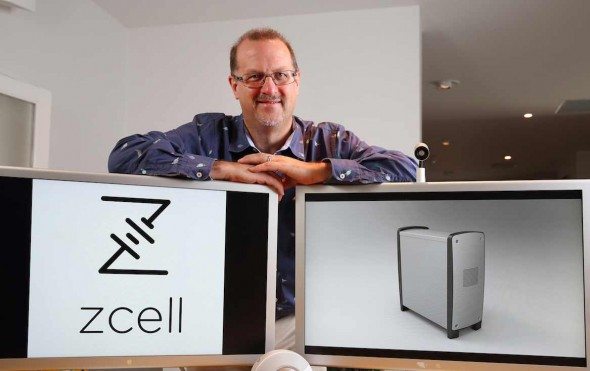

Australian battery storage developer and manufacturer Redflow says it has resumed deliveries of its zinc-bromine flow batteries to its installation partners, after solving a problem with impurities that caused a pause on deliveries announced two weeks ago.
It also announced that it had scored its biggest sale to date of the ZBM2 zinc-bromine flow batteries, worth about US$600,000 (A$800,000), for multiple sites in the Pacific Islands.
Two weeks ago, Redflow announced that delivery of new batteries had been “paused pending the outcome of further testing,” after a small batch of delivered stock were found have electrolyte impurities.
The Brisbane-based company said laboratory test results showed that 25 batteries in stock met Redflow quality standards, enabling their immediate delivery to customers.
Redflow said it also had positive results to date from the trial of a simple product remediation process designed to remove battery impurities if required. This process will be applied routinely to any battery subsequently identified as requiring it, to ensure that all batteries shipped to customers meet appropriate quality standards.
The company’s ZCell range is touted for its safety and environmental credentials, it is competing against a growing number of increasingly cheap and well tested lithium-ion and lead acid battery chemistries, including the much-hyped Tesla Powerwall.
The company is now chaired by internet entrepreneur Simon Hackett, who is now the largest shareholder and recently injected another $2 million of “working capital” into the company, with an option to extend the advance up to an overall maximum of $4 million.
“This high-workload deployment in the tropics is ideal for our zinc-bromine flow batteries,” Hackett said.
“Redflow’s ZBM2 is the world’s smallest flow battery – uniquely qualifying it to replace lead-acid batteries in remote site deployments, such as telecommunication sites.
“The ZBM2 excels in hot environments, such as the tropics, for applications that require high cycle depth and cycle frequency, as in the deployment Hitech is planning. This sort of environment and application cycle kills lead-acid batteries in fairly short order, requiring their frequent replacement, whereas our batteries thrive on heat and hard work.”
Giles Parkinson is founder and editor of One Step Off The Grid, and also edits and founded Renew Economy and The Driven. He has been a journalist for 35 years and is a former business and deputy editor of the Australian Financial Review.


